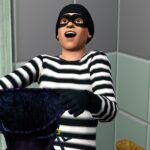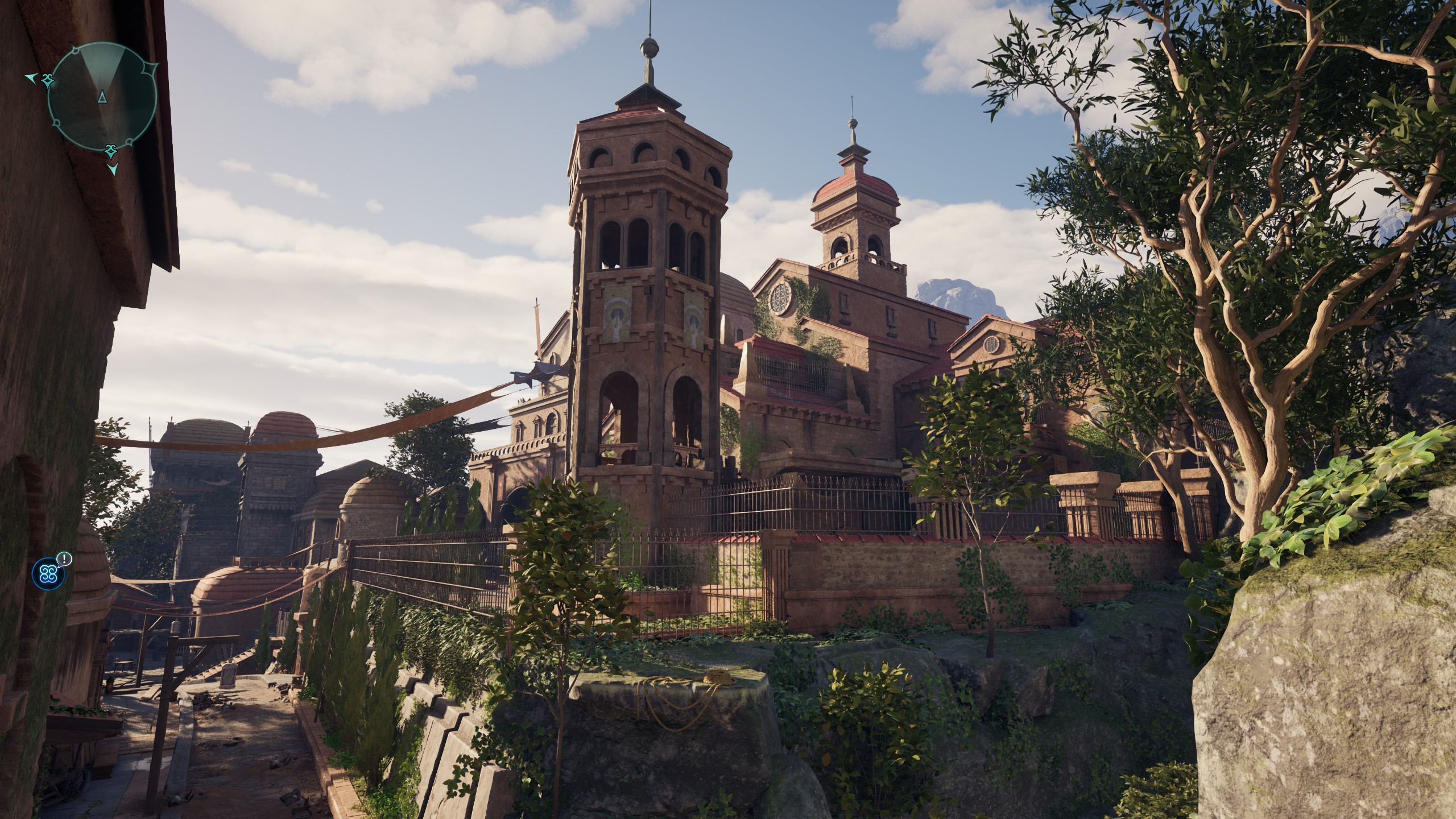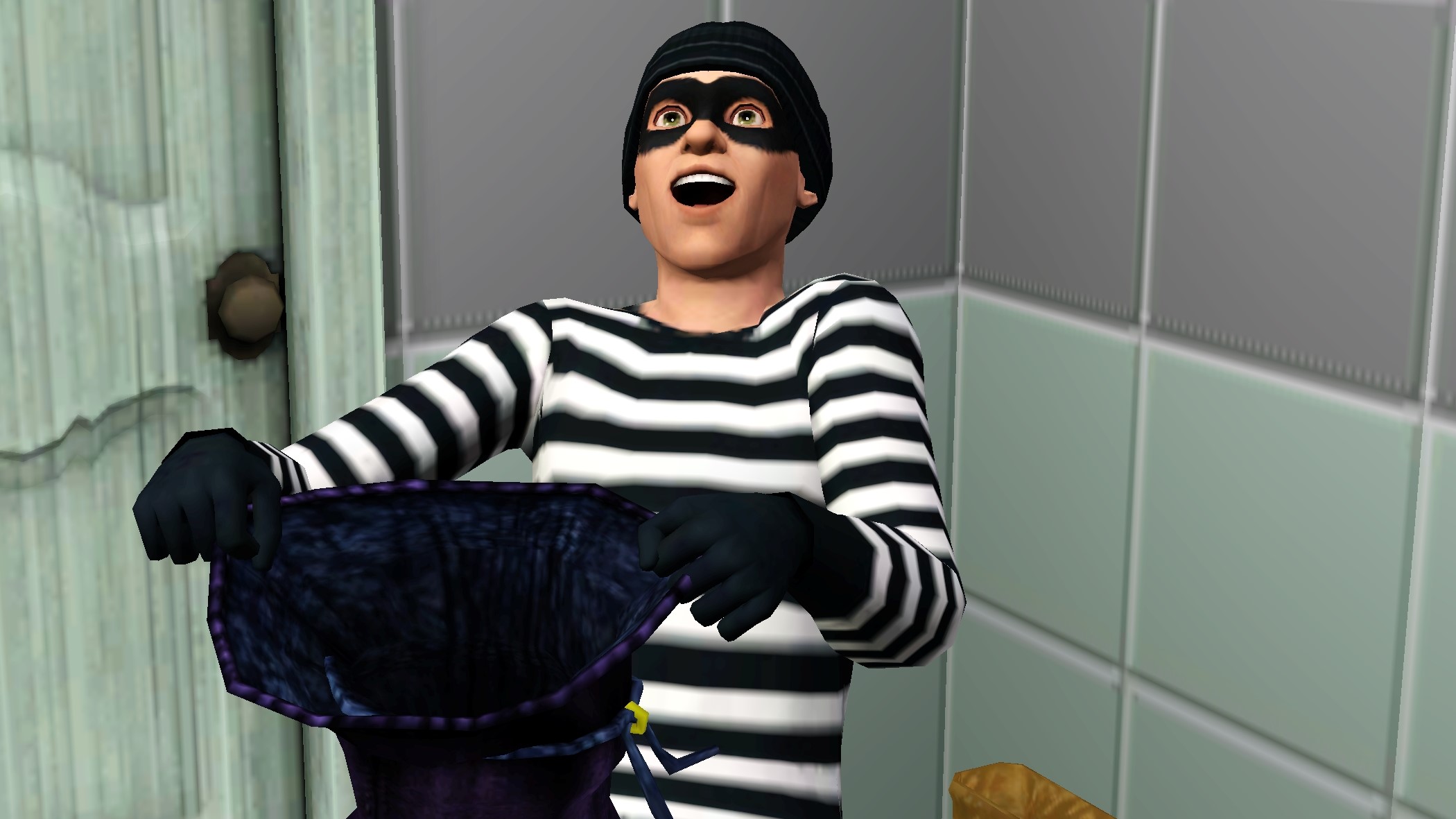It took me a while to find my flow in Avowed, but ever since converting my imperial envoy into an stealth-mage assassin (aka ‘Dishonored’) build, I’ve been enjoying my adventure through the Living Lands. The distinct biomes with dungeons and caves branching off of them, the ample side-quest opportunities, and engaging with this visually vibrant fantasy world from the first-person perspective—spellbook in one hand, sword in the other—all combine to evoke some of my greatest gaming memories wandering around Tamriel throughout the Elder Scrolls series. It’s simpler and smaller, sure, but 14 years since the last Elder Scrolls game, I’ll happily take something to scratch that itch on my arrow-scarred knee.
The more I play Avowed, however, the more cracks I’m seeing in its depiction of a living, breathing world—little glimmers of unflattering light shining through to illuminate its artifice. Maybe that’s not necessarily a bad thing, as it helps me appreciate Obsidian’s RPG as its own world with its own design quirks and rules rather than looking at it through a Bethesdo-scope. On the other hand it’s made me appreciate all the little things that made the Elder Scrolls worlds feel so alive.
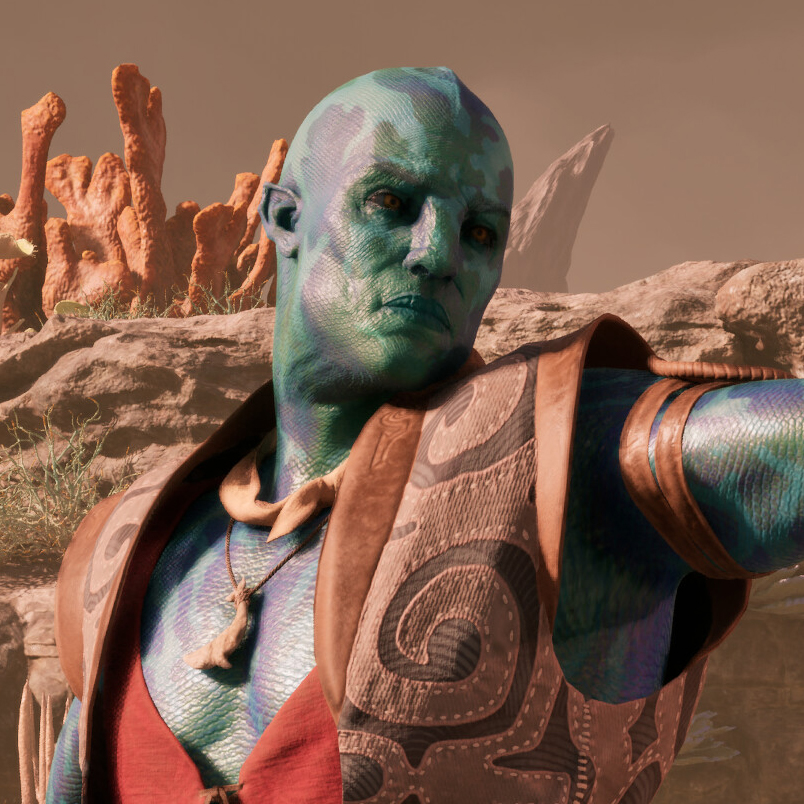
Avowed unique weapons: Grab these early
Totem of Rightful Rulership: Find all the pieces
Intimidating Feline Codpiece: Treasure map solution
Kai romance: Soldier through together
Avowed Ygwulf: How to handle the assassin
First up, there are no routines, dynamic AI, or behaviours underlying NPCs in Avowed, which is fine at first but after a while creates an uncanny Truman Show feeling, where you start to feel that the world is on standstill waiting for you to interact with it. I couldn’t put my finger on it at first, but then it became apparent in the second region’s capital city of Fior mes Iverno, that NPCs don’t walk around—they just stand there!
Some NPCs have fixed animations, brushing the same patch of ground or swaying back and forth in one place like a Weeble Wobble to demonstrate drunkenness, but after a while these repetitive behaviours make them feel more like animatronics than citizens. During an early quest, I saw an NPC run out of the pub with an upset stomach to be sick in the alley outside. You’d think that after a few minutes he’d get on with his life (or at least return to whatever standing animation in whatever spot’s been designated to him), but after untold further adventures that took me to new lands and saw me fighting off an invasion of another city, I eventually returned to that pub to find the same poor sod still in that same alley, barfing in perpetuity.
This extends to the matter of theft—or lack thereof—in the Living Lands. Everything in this land is yours for the taking, and while my like-minded pal Robin has already ranted about this at length, it’s worth repeating that for you to be able to grab goods from the stalls of merchants without them caring or even noticing is one of the greatest sins a game can commit when trying to sell you on the illusion of its world. Combine that with the rigid animation loops, and you have a scenario where you can, say, go up to an NPC meat vendor, grab all the meat out from in front of them while they are curing it, and they will forever continue curing the air in front of them where the meat used to be. You can’t attack NPCs in cities, you can’t piss anyone off, everyone is stuck in their roles.
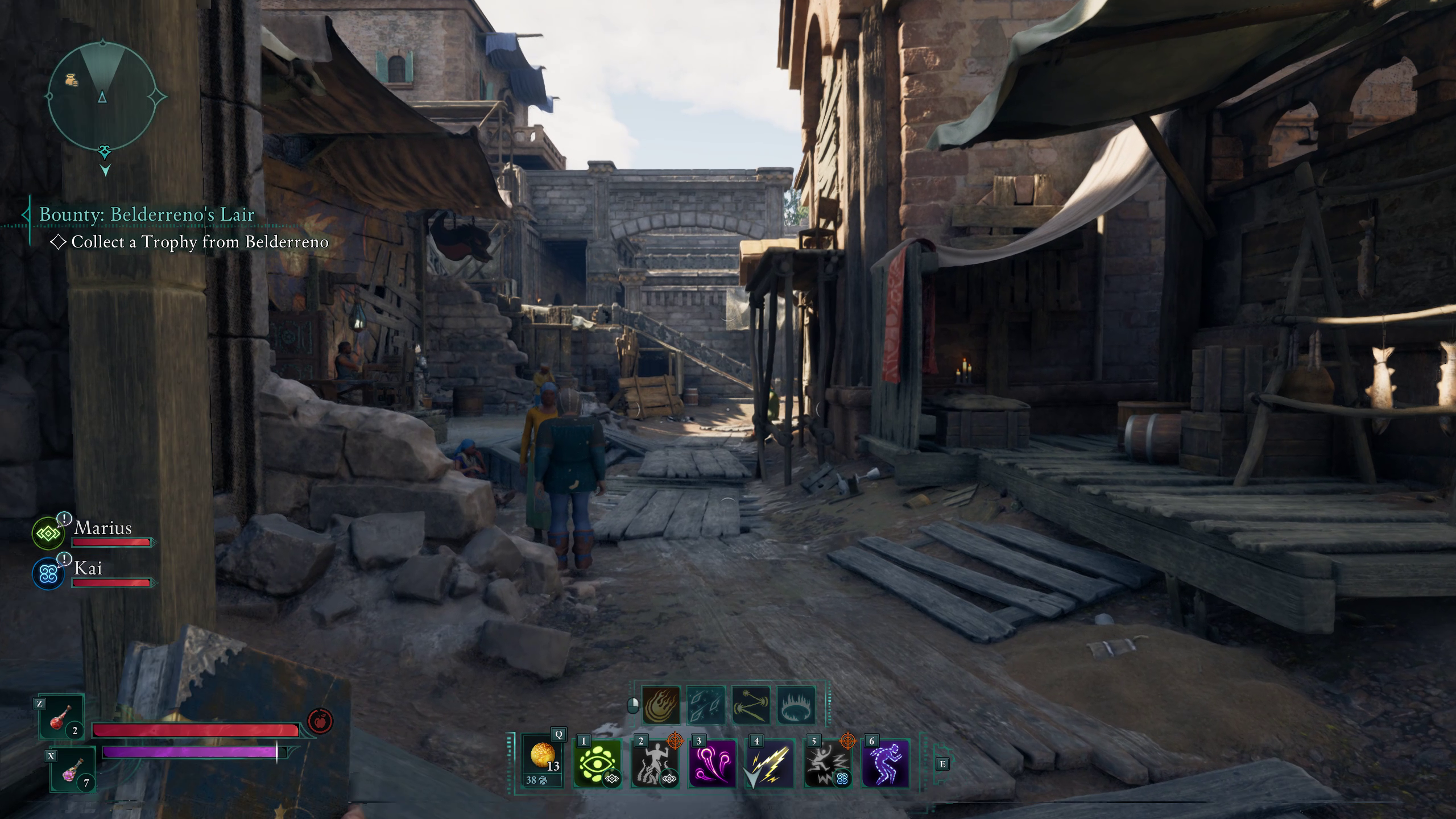
Interestingly, I experienced one incident where an NPC had a dig at me for rummaging through her backpack, but that made it all the more bizarre that I could continue doing so without consequence. It got me thinking that even if Avowed justified your petty thefts by the fact that you’re an envoy of the empire who can flaunt your authority to procure all items in the Living Lands in the name of fighting the Dreamscourge, that would be at least offer something to explain the world’s non-responsiveness. I’m not saying that every RPG needs a full-on dynamic AI system like Oblivion or its distant offspring Kingdom Come: Deliverance, but some reactivity would’ve gone a long way to making me feel the ebb and flow of this world, and in turn become more invested in saving it.
It’s worth remembering that Obsidian’s RPGs are more story-driven than Bethesda’s, with a greater focus on narrative choices, and also that Obsidian is a mid-sized studio that’s always juggling multiple projects at once rather than going all-in on a single game, but this is hardly revolutionary stuff. Back in the 90s, we had Baldur’s Gate 2 and Planescape: Torment: two very much story-driven games that still took the time to program NPCs to potter about cities and respond to your rowdiness. The Witcher 3, which is again more focused around story than emergence and simulation, still implemented basic NPC routines and consequences for committing crimes publicly. Not to mention Obsidian has itself let you get on the wrong side of the locals in Fallout: New Vegas as well as Pillars of Eternity. Some degree of reactivity has been foundational to RPGs for years.
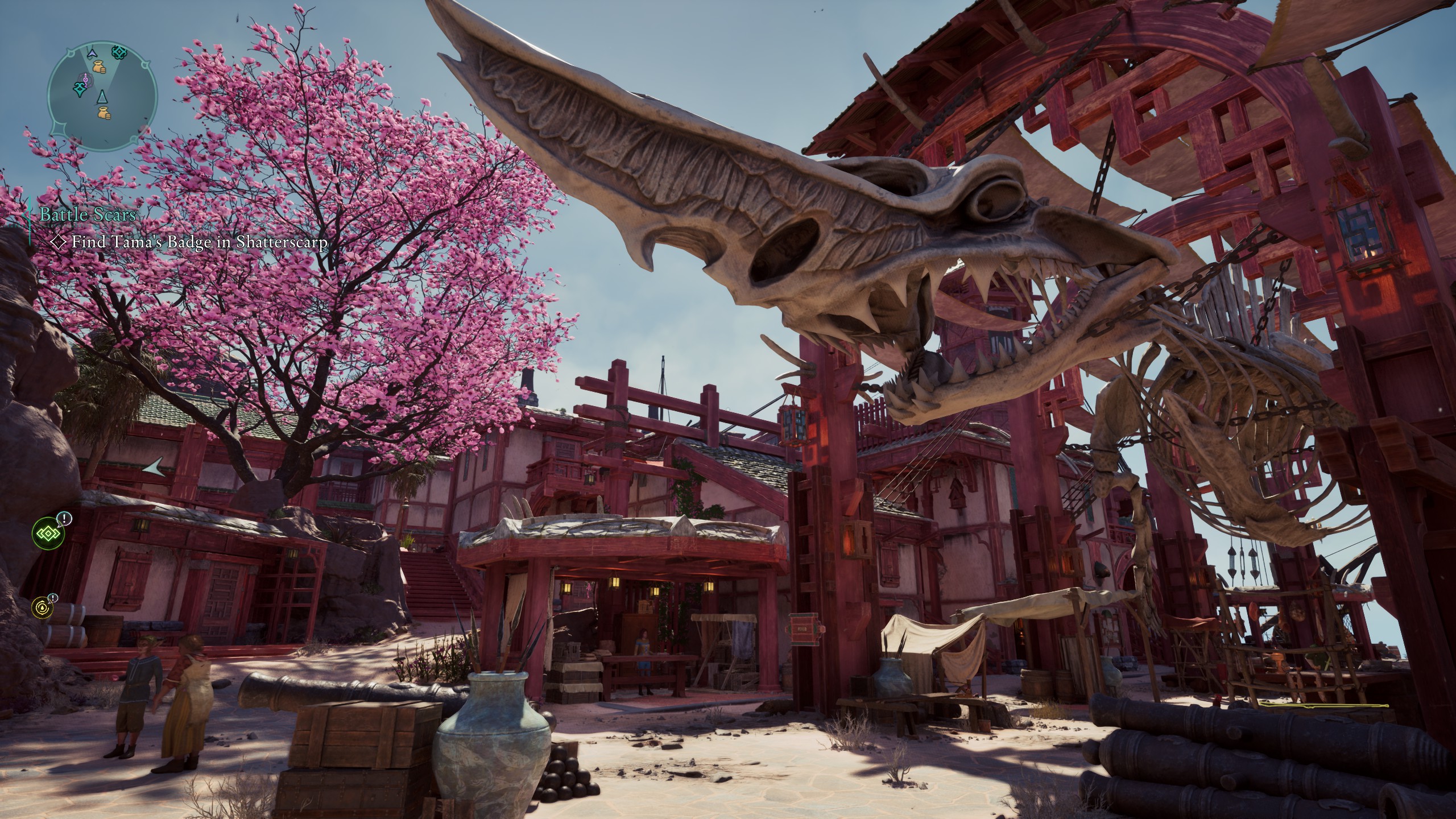
There’s much I like about Avowed, but a weird side-effect of playing it is that I’ve found myself missing Bethesda’s flawed but majestic fantasy sandboxes. I like to laugh as much as anyone at the bottomless well of jankiness content that Skyrim and Oblivion continue to provide after all these years, but amidst the wonky physics and the NPC mass brawls it’s easy to forget that the Elder Scrolls series is a masterclass in immersion that’s still largely unmatched. These games rewarded your (usually criminal) curiosity with appropriate NPC reactions, and had a framework flexible enough to accommodate whatever weird character you concocted in your head-canon—be that a serial killer, fisherman, or thief.
Maybe I’m spoiled by the fact that my formative gaming years were between 2002 and 2011—a nine-year period during which Morrowind, Oblivion, and Skyrim were released, and reactive RPG worlds made up a big part of my teenage gaming tapestry. Maybe there’s a part of me that will forever associate RPG freedom with petty thefts and wanton murder, but 14 years on from the last Elder Scrolls game, I’m feeling their absence more than ever.


